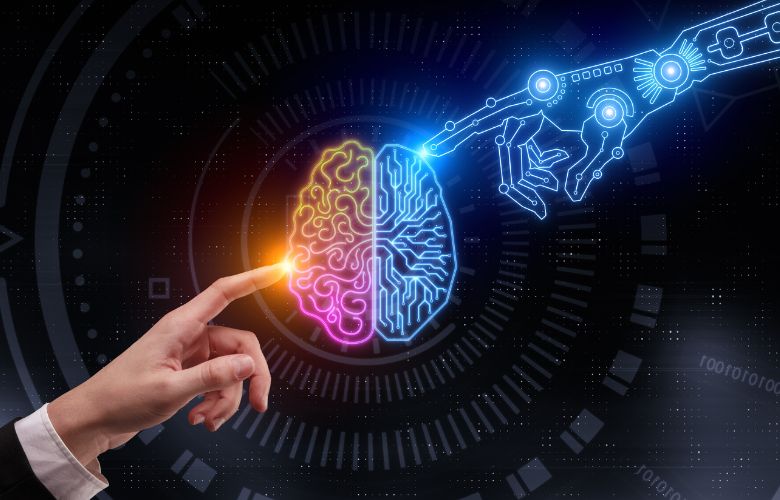In an era where technology continuously evolves, it’s not uncommon to wonder whether everyday devices, such as calculators, fall under the umbrella of Artificial Intelligence (AI). While calculators are undoubtedly sophisticated tools.
Contents
Defining Artificial Intelligence

Before addressing the role of calculators, let’s establish a foundational understanding of what Artificial Intelligence truly encompasses. AI refers to the development of computer systems capable of performing tasks that typically require human intelligence. These tasks include problem-solving, learning, reasoning, natural language understanding, perception, and decision-making.
AI systems can be classified into two categories:
- Narrow AI (or Weak AI): This type of AI is designed for a specific task or domain. It excels in that particular area but lacks general intelligence or the ability to perform a wide range of tasks.
- General AI (or Strong AI): General AI possesses human-like intelligence, allowing it to handle various tasks, learn from experience, and adapt to new situations. Achieving true General AI is a complex and ongoing pursuit.
Now that we have a grasp of what AI involves, let’s explore calculators and their capabilities.
The Role and Function of Calculators
Calculators are ubiquitous devices that have been a part of daily life for decades. These electronic tools are designed to perform mathematical calculations quickly and accurately. The basic functions of a calculator include addition, subtraction, multiplication, division, and more advanced operations like trigonometric functions, logarithms, and statistical calculations.
Calculators come in various forms, from simple handheld devices to sophisticated scientific and graphing calculators used by students, engineers, and professionals. Despite their capabilities, calculators operate within predefined algorithms and rules. They don’t possess the ability to learn, adapt, or make decisions beyond the scope of their programmed functions.
Is a Calculator Artificial Intelligence?
To answer the question of whether a calculator is artificial intelligence, we need to consider the characteristics and limitations of AI and calculators.

Characteristics of AI:
- Learning and Adaptation: AI systems can learn from data and adapt their behavior accordingly. They can improve their performance over time through a process known as machine learning.
- Problem Solving: AI can tackle complex problems and find solutions by processing vast amounts of data and applying algorithms.
- Decision-Making: AI systems can make decisions based on data analysis, patterns, and predefined criteria.
Limitations of Calculators:
- Predefined Functions: Calculators operate within a fixed set of predefined functions and algorithms. They cannot learn or adapt to new tasks or data.
- Lack of Decision-Making: Calculators do not possess decision-making capabilities. They perform calculations based on input but do not make choices or decisions beyond mathematical operations.
- Absence of Learning: Calculators do not learn from previous calculations or user interactions. They do not improve their performance over time.
Based on these characteristics and limitations, calculators do not qualify as artificial intelligence. They lack the fundamental attributes of AI, such as learning, adaptation, problem-solving beyond mathematical calculations, and decision-making.
The Distinction between Tools and AI
It’s important to distinguish between tools and technologies designed for specific purposes, like calculators, and true artificial intelligence. Tools are engineered to perform particular tasks efficiently and accurately, but they operate within predefined boundaries and lack the capacity for autonomous learning or decision-making.
Artificial intelligence, on the other hand, represents a broader field of technology aimed at replicating human-like intelligence, encompassing capabilities like learning, reasoning, and problem-solving across various domains. AI systems have the potential to analyze vast datasets, recognize patterns, and make informed decisions without human intervention.
The Evolution of AI in Calculators
While calculators themselves are not AI, it’s worth noting that some calculators integrate AI-like features to enhance their functionality. For example:
- Natural Language Processing (NLP): Certain advanced calculators may incorporate NLP capabilities, allowing users to input mathematical expressions in plain language, such as “What is the square root of 144?” The calculator then interprets the query and provides the correct answer.
- Graphical Calculators: Graphing calculators have evolved to handle complex functions and graph plotting, blurring the line between calculators and computational devices with AI-like features.
- Mobile Calculator Apps: With the advent of smartphones, calculator apps often include additional functionalities, such as unit conversions, currency exchange rates, and even basic scientific calculations.
These features enhance the user experience and make calculations more accessible and intuitive, but they do not transform calculators into true AI systems. They are still bound by their programmed functions and lack the cognitive abilities associated with artificial intelligence.
Conclusion: The Role of Calculators in a Tech-Driven World
In conclusion, calculators are powerful tools designed for mathematical calculations, but they do not qualify as artificial intelligence. They lack the capacity for learning, adaptation, and autonomous decision-making that defines AI systems. While calculators have evolved to include advanced features, they remain tools engineered for specific tasks.
Understanding the distinction between tools and artificial intelligence is essential in a world where technology continually shapes our daily lives. AI represents a groundbreaking field with the potential to revolutionize industries, while tools like calculators serve as invaluable aids for precise calculations. By recognizing their respective roles, we can harness the benefits of both tools and AI to navigate the complexities of our tech-driven society.






